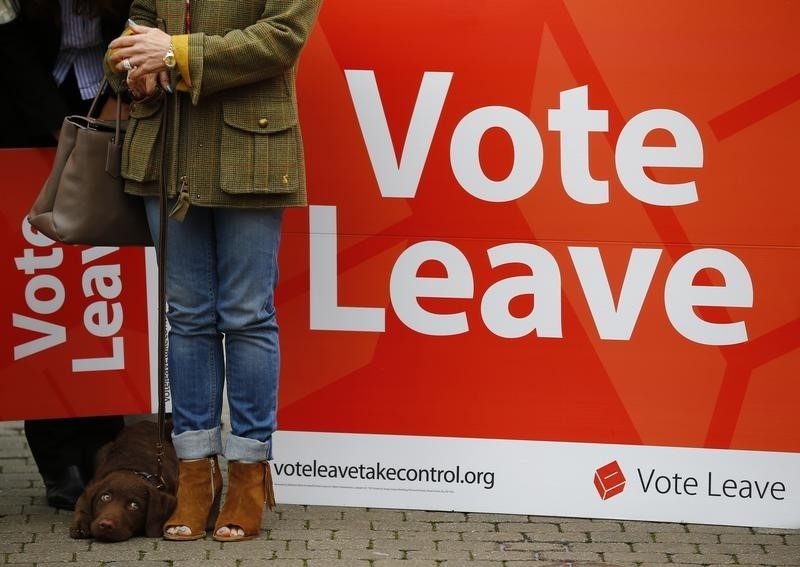By Jonathan Cable
LONDON (Reuters) - Britain's economic growth should be slow and steady in the coming year but that would be under threat if the country votes to leave the European Union or if jitters over the world economy intensify, a Reuters poll found.
An overwhelming majority of the 60 economists polled this week said Britain voting to leave the EU in a referendum on June 23, a so-called Brexit, and global economic uncertainty were the two biggest risks to growth.
"There is little doubt that a potential Brexit poses huge risks to the outlook for the UK," said Peter Dixon at Commerzbank (DE:CBKG) in London.
"All sides agree that there will be short-term costs but coming at a time when global uncertainty is already high, there will almost certainly be some sharp market moves which in turn may impact upon decision-making in the real economy."
The campaign to keep Britain in the European Union is 4 percentage points ahead of the "Out" campaign, though that lead has halved since February, JPMorgan (NYSE:JPM) said in an analysis of recent opinion polls. http://tmsnrt.rs/1Ke31HF
If Britons do decide to stay a member of the bloc the economy will grow 0.4-0.5 percent in all but one quarter through to September 2017, the poll found, little changed from an April poll.
Surveys have shown firms have adopted a "wait-and-see" position on investment and in the quarter after the vote, once the uncertainty has gone, growth should bounce to 0.6 percent.
British economic growth slowed to 0.4 percent last quarter, buffeted by a slowing global economy and worries ahead of the referendum, but probably of more concern to policymakers inflationary pressures remain almost non-existent.
Inflation did hit its highest level in 15 months in March but at just 0.5 percent it was still nowhere near the Bank of England's 2 percent target. The poll suggested it will be toward the end of 2017 at least before it gets there.
None of the economists polled expect the first policy tightening from the Bank since mid-2007 until October at the earliest and the median forecast said Bank Rate will not rise from its record low 0.5 percent until early next year.
The initial 25 basis point hike will be followed by an identical move in the third quarter, the poll found. Bank Rate will end 2017 at 1.0 percent and 2018 at 1.5 percent, both 25 basis points lower than predicted in an April 29 poll.

Markets are not pricing in a first hike until toward the end of the decade.
(Polling by Vartika Sahu and Khushboo Mittal; Editing by Ross Finley and Robin Pomeroy)